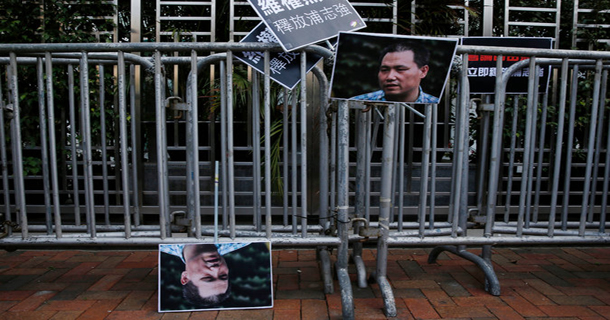Although December is the month in which the international community marks Human Rights Day, this December much of the world was accused of ignoring or even condoning China’s tendency to disregard international law and the principle of human rights. Several high-profile lawyers, activists, and businessmen have become the recent targets of Chinese government crackdowns, while journalists, foreign diplomats, and protestors have been harassed, mistreated, and manhandled in an attempt to silence the issue.

One of China’s most prominent human rights lawyers Mr Pu Zhiqiang was arrested on charges in connection with online criticism of the government
Photo: The New York Times
This past month, Pu Zhiqiang, a respected lawyer known for campaigning against the labour camp system and for representing artist/activist Ai Weiwei, was arrested on charges of “picking quarrels and provoking trouble” after commenting on social media about the “excessively violent” crackdown on Uighurs in the restive Xinjiang region. During Mr Pu’s open trial, plainclothes policemen pushed, shoved, and punched reporters, camera crews and diplomats away from the front of the court.One United States diplomat, who had wanted to attend the trial as an observer, was jostled along the street as he tried to read a statement condemning China’s treatment of Pu Zhiqiang. Other supporters were dragged away by police.
Although Pu Zhiqiang’s trial has received a significant amount of international attention, he is not the only lawyer currently facing vague and questionable charges. Amnesty International says that 245 lawyers and activists have been targeted since July. While some have faced trial, others like civil rights attorney, Li Heping, have been disappeared and remain missing. Similarly, businessmen have also been singled out. While government officials claim that such arrests are the result of corruption, many critics suggest that those targeted are actually individuals who are exposing corruption amongst the elite and politically connected. Guo Guangchang, dubbed “China’s Warren Buffet” was reported missing before he was determined to be in police custody. The circumstances around his arrest remain unclear, as it is still uncertain whether or not he is under investigation.
Although these stories are receiving significantly more attention than was given to similar cases in the past, silence still seems to be the official position of the international community, with few countries willing to officially voice any criticism. Media outlets, fed up with visa restrictions and harassment, have become more vocal. Also, ordinary citizens have grown more aware of the situation in recent years. However, most governments are choosing not to condemn China’s actions. There is speculation that this is financially motivated, as many countries are so economically tied to China that they dare not risk the relationship. Only three countries – Canada, Germany, and the United States – have issued official statements criticising the human rights record of China in the aftermath of Pu Zhiqiang’s trial. Other countries have shied away from commenting, with some even refusing to make a joint statement about the importance of human rights. Britain even issued a statement praising China for progress on human rights and making no mention of any human rights concerns.
Although China is growing increasingly assertive in pushing back against criticism of its human rights record, some business experts suggest that silence and adulation are unlikely to be materially beneficial in the long run. Countries such as Germany, which have stood up to China on human rights issues, still enjoy warm and growing trade relations. Even archrival Japan has a thriving business relationship with China. Those who subscribe to this belief also suggest that foreign deference to China is often met with an increased demand for concessions, which means that those who stand up to China will ultimately be the countries to benefit the most materially.




 Print
Print Email
Email